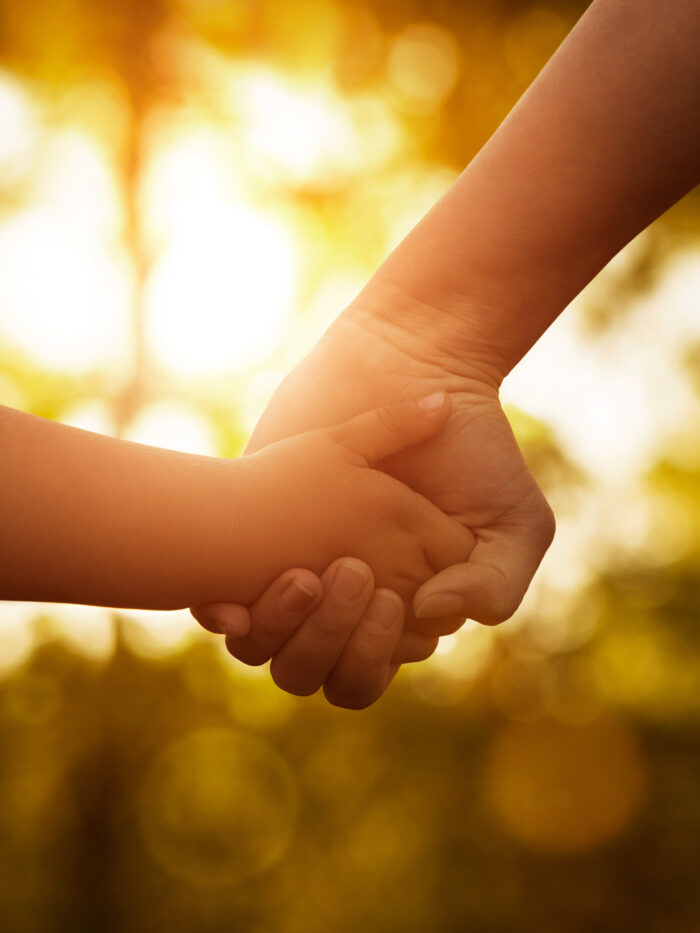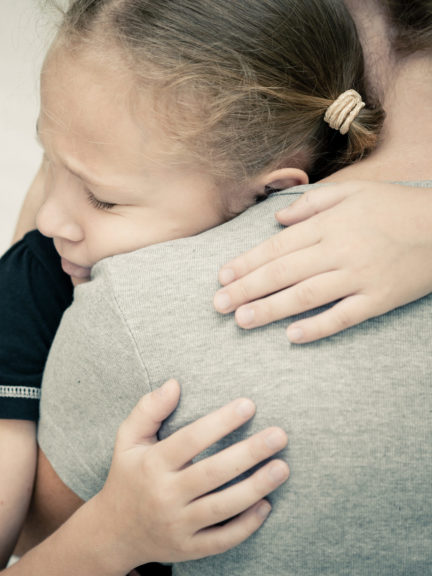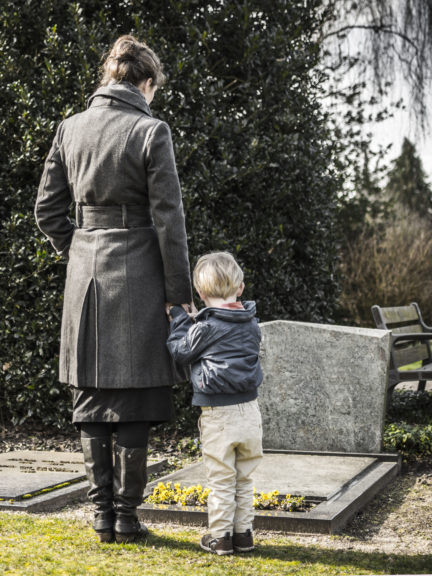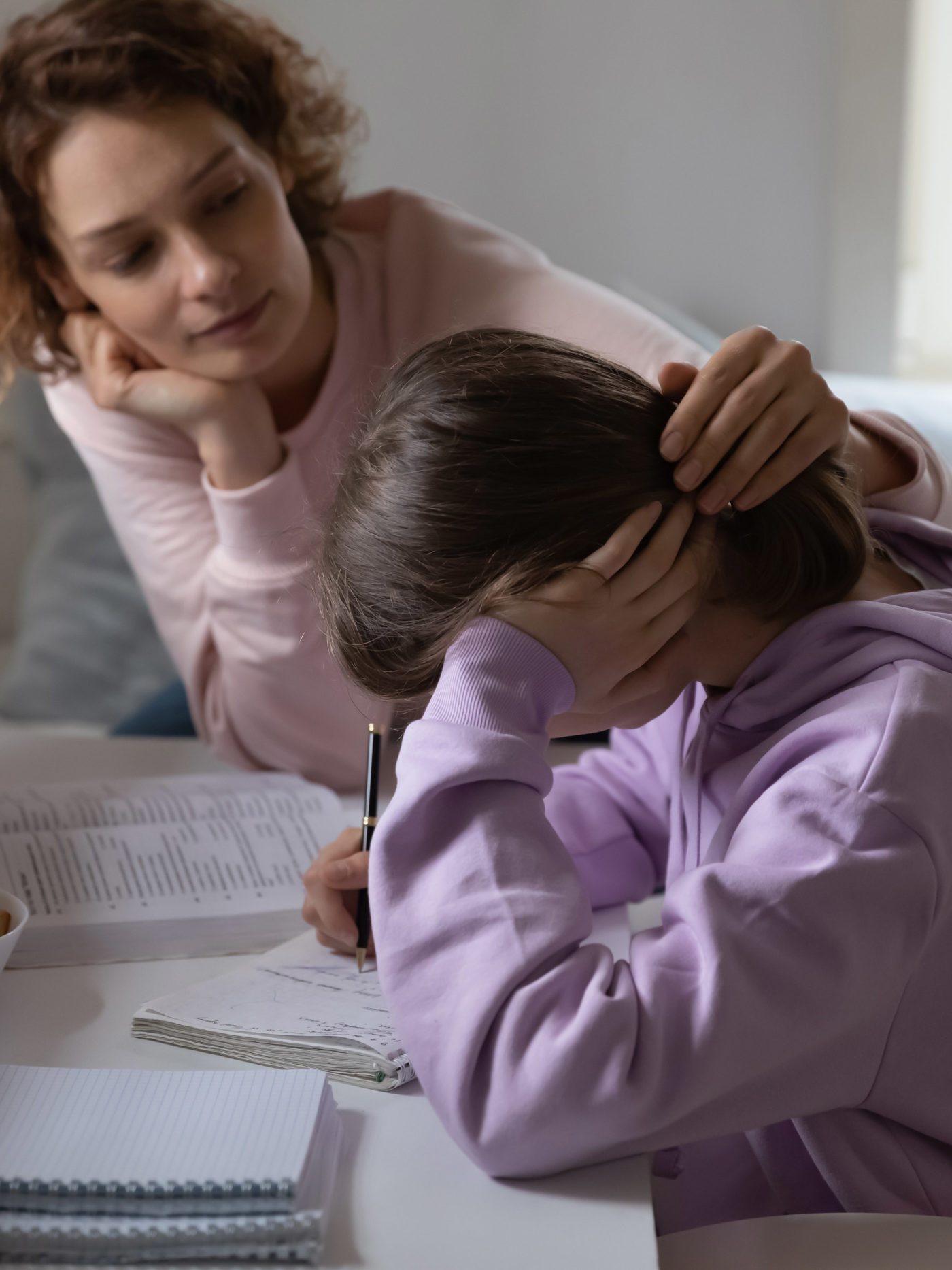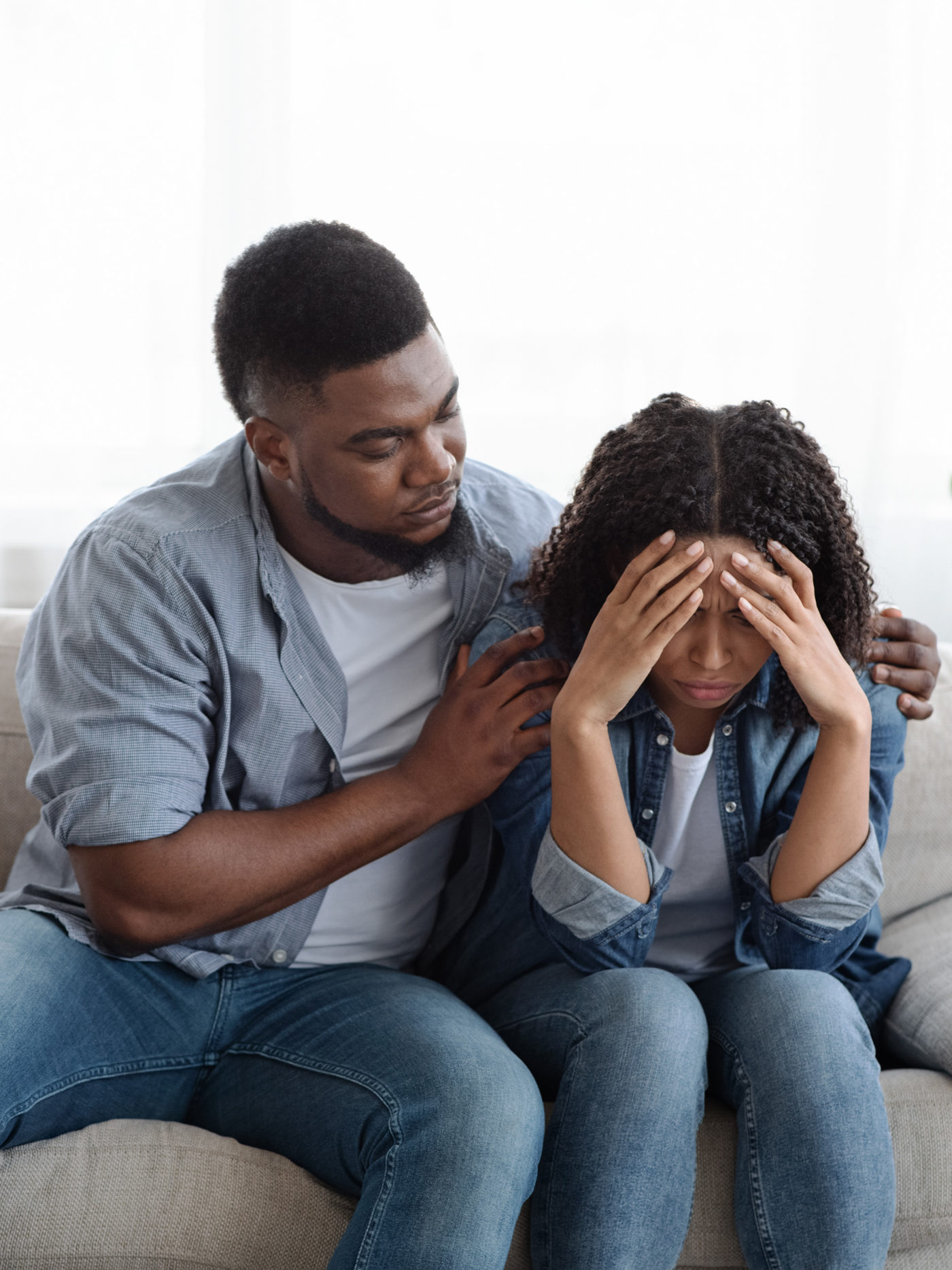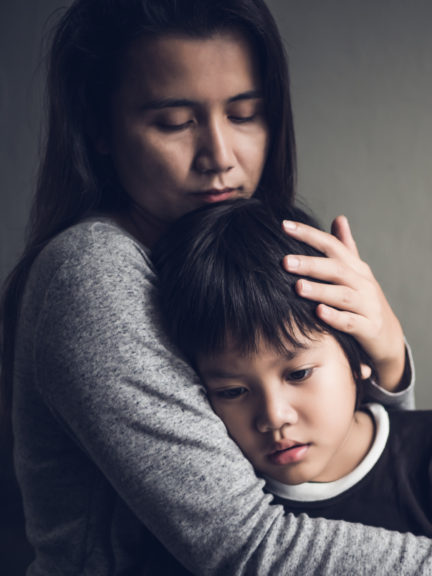MENTAL HEALTH GUIDE
Grief
Everyone grieves differently. The grieving process takes time and cannot be forced or hurried. Though kids and adults alike may feel pressure to heal quickly from a death or loss, there is no “normal” timetable for grieving. Whatever your or your child’s grief experience may be, it is important to be patient with yourself and to allow the process to naturally unfold.
Crisis Resources
If your child expresses thoughts of wanting to harm themselves or others, call 9-1-1 or visit the nearest emergency department.
988 Suicide and Crisis Lifeline:
Call 9-8-8
Text any message to 9-8-8
Chat online at 988lifeline.org/chat
Crisis Text Line:
Text “HOME” to 741741
Save for later
Download, print or share on social media.
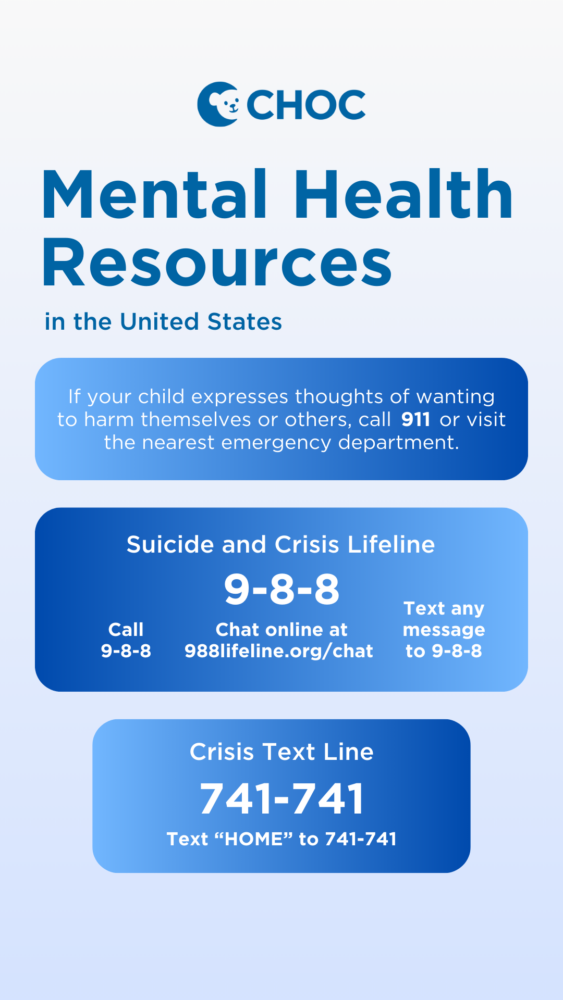
Learn more about CHOC’s pediatric mental health services
At CHOC, we specialize in providing a full spectrum of pediatric mental healthcare, including inpatient, intensive outpatient and outpatient program services.
Get 24/7 advice from CHOC
Grief overview
Children and adults in grief sometimes feel pressure from themselves and from others to act and feel a certain way. They may worry that they are coping “wrong.” Everyone grieves differently, and the spectrum of grief reactions is diverse. It is important to support what feels helpful for someone in grief; they are the expert on how they are feeling and what does and doesn’t “work” for them.
What are common symptoms of grief?
- Shock and disbelief: Right after a death or loss, it can be hard to accept what happened. You may feel numb, have trouble believing that the death really happened or even deny the truth. You may keep expecting your loved one to show up, even though you know they are gone.
- Sadness: Profound sadness is the most universal symptom of grief. You may have feelings of emptiness, despair, yearning or deep loneliness. You may also cry a lot or feel emotionally unstable.
- Guilt: You might feel regret about things you did or didn’t say or do before the death. You may also feel guilty about certain feelings or for not doing something to prevent the death, even if there was nothing you could have done.
- Anger: Even if the death was no one’s fault, you may feel angry and resentful.
- Fear: You may feel anxious, helpless or insecure. The death of a loved one can trigger fears about your own safety or about facing life without that person.
- Physical symptoms: For some, grief can cause fatigue, nausea, lowered immunity, weight loss or weight gain, aches, pains or insomnia.
Where should I go for help?
- Know that grief will change over time. Often, grieving people feel pressure to resolve their grief quickly. Grief never ends, but it changes over time. It continues to evolve as we learn to cope with the loss. If you find you are having trouble coping, consider seeking outside support.
- Talk with a professional. Seeking the help of a therapist can teach you to address your thoughts and feelings about your grief.
- Join a support group. Grief can feel very lonely, even when you have loved ones around. Sharing your sorrow with others who have experienced similar losses can be healing.
- CHOC Bereavement Support Groups for the Death of a Child: Email griefsupport@choc.org.
- Community Bereavement Support Groups
- Compassionate Friends. Nationwide bereavement support groups for families after the death of a child.
- The MISS Foundation. A nonprofit, international organization that provides immediate and ongoing support to grieving families, empowerment through community volunteerism opportunities, public policy and legislative education and programs to reduce infant and toddler death through research and education.
- Jonathan’s Giving Tree. An organization that assists with funding for funeral services for low-income families of children ages 12-24 who have died by car accident, unintentional self-medicating or suicide. They provide grief counseling and organize support groups for parents, siblings or families of any economic status.
- New Hope Grief Support Community. A non-profit therapy and grief education program based in Southern California providing grief groups, resources and educational opportunities for bereaved families.
- Empty Cradle. A non-profit peer group for parents who have experienced the loss of a baby through miscarriage, stillbirth or infant death.
- Our House Grief Support Center. An organization that provides essential grief support for adults, teens, children and toddlers, including support groups specific to the age of the griever, length of time since the death and the relationship to the person who died.
- The Dougy Center. An organization helping children, teens, young adults and their parents cope with death since 1982. They provide many resources in Spanish.
How do I know if I need a mental health specialist?
Left untreated, complicated grief and depression can interfere with the way we think, feel and act. Although grief is normal after a death, it deserves attention when problems are severe, persistent and affect daily activities. Always seek help if you feel like life is not worth living, if you wish you had died with your loved one or if you feel disconnected from others for more than several months. A CHOC social worker can help you connect with a professional therapist by emailing griefsupport@choc.org or calling 714-509-8521.
- If you are experiencing a life-threatening emergency, call 9-1-1.
- To reach the Crisis Text Line, text HOME to 741-741 or visit crisistextline.org.
- To reach the National Suicide Prevention Lifeline, call 9-8-8 or visit suicidepreventionlifeline.org
Grief: Say this, not that
Most of us are never taught how to react to grief and loss. So we may not know what to say, or not to say, when a person in our lives is going through a loss. Below are some things that we can say, and not say, when a loved one is grieving:
- Instead of “I’m sorry for your loss”, try “Thank you for telling me what happened. I know there are no words to make it better. Just know that I am here and want to support you however I can.” While there isn’t anything wrong with the phrase “I’m sorry for your loss”, the phrase is a common one. Consider that your loved one may have already heard it several times since their loss and that it may have lost its meaning in the process.
- Instead of “I know what you are going through”, try “Grief is so unique. Do you feel comfortable sharing with me how this has been for you?” While you might want them to know that you understand what they are going through, saying “I know what you are going through” will take away the person’s opportunity to share, in detail, about their grief.
- Instead of “Let me know if there’s anything I can do to help,” think about specific ways you can help your loved one. By giving your loved one options of how you can help, you are alleviating the pressure they may feel from trying to figure out what they need. Offer to drop off a meal, run an errand or do some chores around the house.
- Instead of “You’re so strong”, try “I know grief looks different for everyone, especially privately versus publicly, so I am so happy to see you here today.” Assuming that a person is “strong” by trying to carry out their day-to-day activities may send the message that it is better if they hide how they really feel. Giving them space to share honestly can help them feel more at ease.
 Print this section
Print this section

Learn more about CHOC’s Pediatric Mental Health Services
CHOC Hospital was named one of the nation’s best children’s hospitals by U.S. News & World Report in its 2024-25 Best Children’s Hospitals rankings and ranked in the behavioral health specialty.
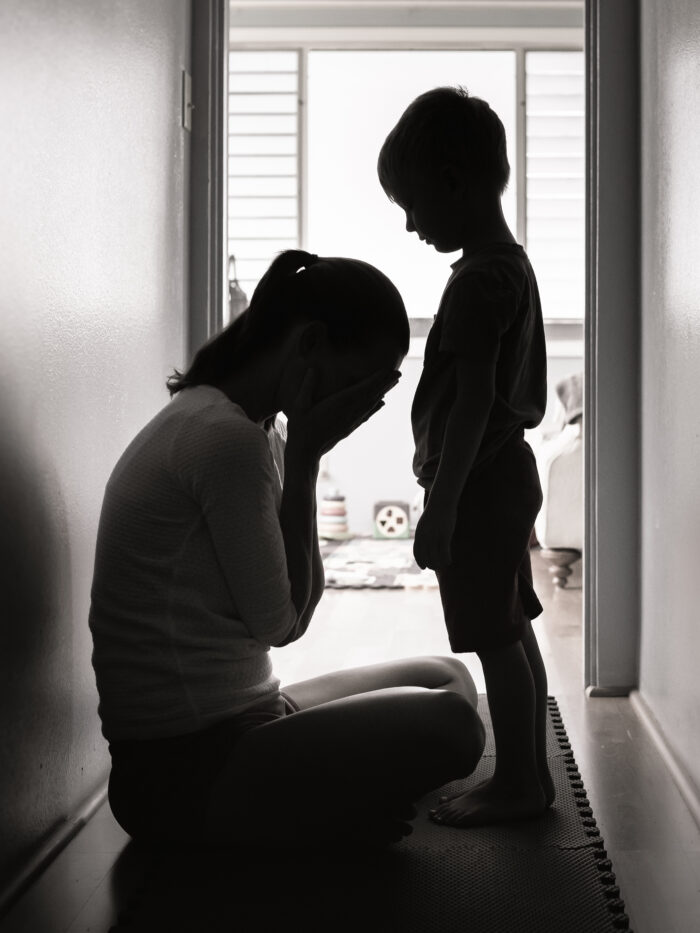
Tips for parents and caregivers coping with grief and loss
The most important factor in healing from loss is having the support of other people. It is important to express your feelings when you are grieving, even if you are not normally comfortable doing so. Sharing your loss makes the burden of grief easier to manage. Connecting with others will help you in your journey of healing.
Turn to friends and family.
Draw loved ones close rather than avoiding them. Accept the help that is offered. Often, people want to help but do not know how. Tell them what you need, such as a shoulder to cry on, help with funeral arrangements or help around the house.
Take comfort in rituals.
If you are religious or spiritual, embrace the comfort that mourning rituals can provide. Rituals could include praying or attending services at a place of worship. If you are questioning your faith in the wake of the death, talk to the clergy or spiritual leader in your faith community. If you do not engage in religious practice, find a different kind of ritual to help you feel grounded, such as meditation or yoga.
Find a safe outlet.
If you struggle to discuss your grief with your support system, consider finding an outlet for your grief. That could include a meaningful hobby, like creating art. You might also consider seeking outside help, such as a therapist or support group, to process your grief in a safe space.
 Print this section
Print this section
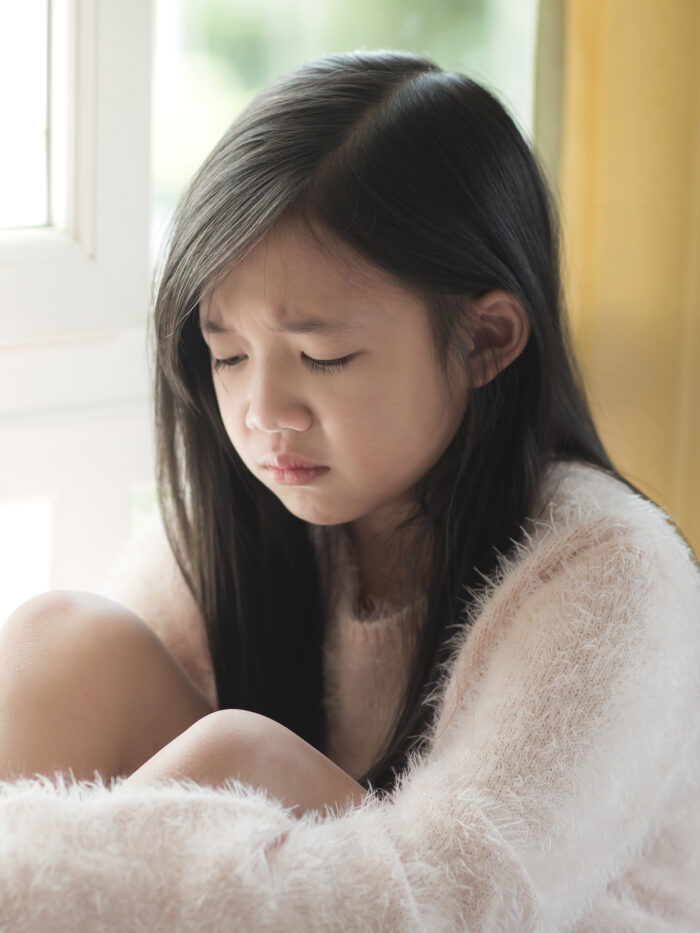
Tips for parents and caregivers of grieving children
If you are the caregiver of a grieving child, you may also be balancing coping with your own grief. It can be distressing to witness your child grieve, but learning how to support them will help them now and for years to come. In addition to prioritizing your own needs, here are some ideas for how to support your child in coping with grief.
- Care for yourself. Caring for yourself is vital in order to be able to support your child in their grief. In addition to helping your physical and mental health, engaging in self-care practices also helps you model ways your child can take care of themselves throughout their grief/loss journey.
- Be honest. Children who are not accurately informed will often develop their own versions of events. Those versions can be full of misunderstanding, guilt or shame and can cause them to grieve in isolation. Age-appropriate honesty lets children know that they can trust you.
- Avoid euphemisms. Euphemisms for death, such as “passed away,” “went to sleep,” and “lost,” can confuse young kids. Explain death honestly and in terms the child will understand (e.g. it means someone’s body is not working anymore and they cannot come back).
- Find comfort in faith. If you or your child have religious beliefs, be sure the child understands that the body stops working, even if you believe the soul or spirit continues on.
- Check the level of understanding. Encourage questions. Be prepared for children to ask a lot of detailed questions and to ask for frequent clarification.
- Make sure the child know that the death is not their fault.
- Share you own feelings. Give permission to feel sad, angry, etc.
- Reassure the child of your continued presence and support.
- Be open to funeral attendance. Unless the child adamantly states that they do not want to attend a funeral or memorial service, it is important to give them the opportunity to attend. Prepare your child for what to expect and provide them with choices about how they would like to be involved.
- Maintain routine and consistency. Uphold rules and expectations that were set prior to the loss your child experienced. By helping your child maintain a consistent routine, you are assisting them with finding a sense of “normalcy” despite their loss.
Another way you can help support your child or loved one during their grief journey is by using the Awareness-Reflection-Questions (ARQ) framework. It is a communication tool to help others feel validated and understood in their grief.
- Awareness: Think about your own experiences with grief and how they shape your expectations. You can also be aware of significant days and transitions for the child (i.e., birthdays, Mother’s Day, the anniversary of the death, etc.)
- Reflection: Reflect what the child says and does – this enables them to better understand what they think and feel (“You’re really sad because it’s your Mom’s birthday, and you miss her”).
- Questions: Decide if it’s helpful/comforting to ask a question that allows the child to share more of their experience: “when you feel sad, where do you feel it in your body?” “What did your Mom love to do on her birthday?” “What do you love to do on your birthday?”
 Print this section
Print this section
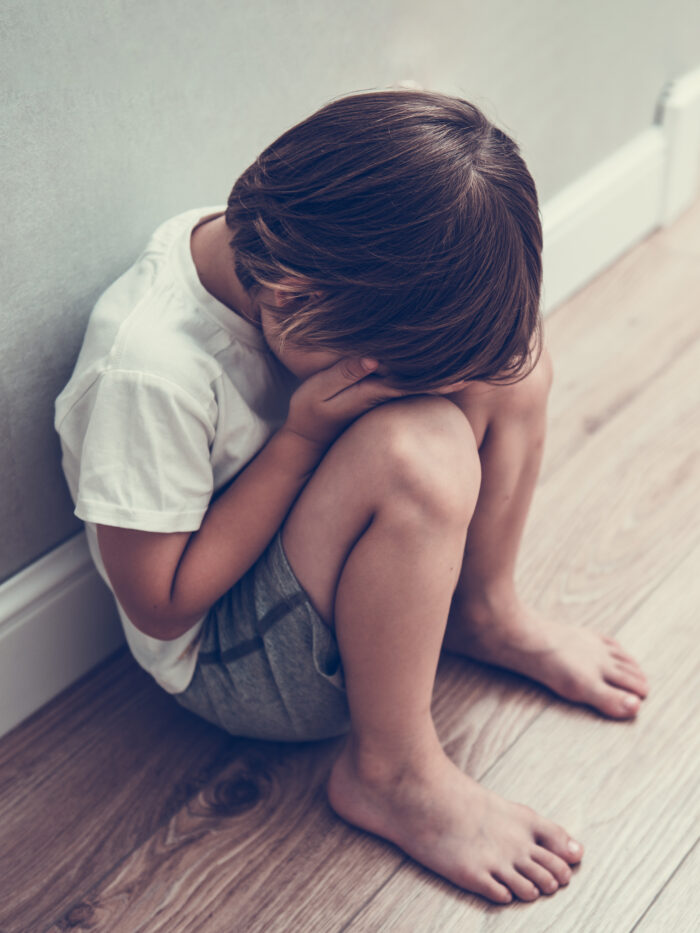
Tips for kids and teens coping with grief
There are many ways kids and teens grieve about the death of a loved one. Grief can feel scary, and many kids don’t know how to cope with it. Remember that it is normal to feel grief after a death. Remind yourself that over time you will begin to heal. Here are some tips you can use to cope with your loss:
- Face your feelings. Name what you are feeling. Point out if you feel pain, sadness, anger, guilt or anything else.
- Express your feelings in a creative way. Write about your grief in a journal. Make a photo album celebrating the person’s life. Get involved in a cause or organization that was important to the person who died. Finding a creative outlet can help relieve some of the heaviness you feel.
- Pay attention to physical health. The mind and body are related. When our bodies feel good, our minds can feel better, too. Fight stress and fatigue by getting enough sleep, drinking enough water, eating nutritious foods and moving your body. Avoid alcohol and illicit substances to numb the pain of grief.
- Seek support. Grief can bring up many tough emotions. Consider reaching out to your friends, family, teachers, school counselor or any trusted adult for support. Talking through your grief with a trusted person can help you manage feelings surrounding your grief.
- Keep a routine. Carrying on with your day-to-day life, as much as possible, can help create a sense of normalcy in your life. Even when it feels hard, try to keep a simple routine you can follow each day.
- Don’t be afraid to ask for help. If you notice that you are struggling to manage your grief after trying these tips, consider talking to a mental health professional, like a therapist or counselor. A professional may be able to teach you additional coping tools for managing your grief and loss.
 Print this section
Print this section

Learn more about CHOC’s Pediatric Mental Health Services
CHOC Hospital was named one of the nation’s best children’s hospitals by U.S. News & World Report in its 2024-25 Best Children’s Hospitals rankings and ranked in the behavioral health specialty.
Grief recommended reading
 Print this section
Print this section
Related guides
For some, grief can bring up other mental health challenges. For more information on related mental health conditions, please visit our other mental health guides.
Additional Resources
Mental health books
- Something Very Sad Happened: A Toddler’s Guide to Understanding Death – Bonnie Zucker and Kim Fleming
- The Memory Box: A Book About Grief – Joanna Rowland and Thea Baker
- Why Do I Feel So Sad?: A Grief Book for Children – Tracy Lambert-Prater
- The Invisible String – Patrice Karst, Joanne Lew-Vriethoff
- Healing Your Grieving Heart for Teens: 100 Practical Ideas (Healing Your Grieving Heart series) – Alan D Wolfelt
- How to Carry What Can’t Be Fixed: A Journal for Grief – Megan Devine
- When a Friend Dies: A Book for Teens About Grieving & Healing – Marilyn E. Gootman
- When a Child Dies – Claire Aagaard
- The Unspeakable Loss: How Do You Live After a Child Dies? – Nisha Zenoff
- Beyond Grief: Snapshots of Life after Loss – Gracelyn Bateman and Melody Lomboy-Lowe
The guidance on this page has been clinically reviewed by CHOC pediatric experts.
For more health and wellness resources from the pediatric experts at CHOC:
Sign up for the Kids Health newsletter.
The contents of this webpage, including text, graphics, audio files, and videos (“Materials”), are for your general information only. The Materials are not intended to substitute qualified professional or medical advice, diagnoses, or treatments. CHOC does not recommend or endorse any specific tests, physicians, products, procedures, or other information that may be mentioned on or linked to this webpage. Always call your physician or another qualified health provider if you have any questions or problems. If you think you may have a medical emergency, call your doctor, go to the nearest emergency department, or call 911.
For more health information for your family visit health.choc.org


